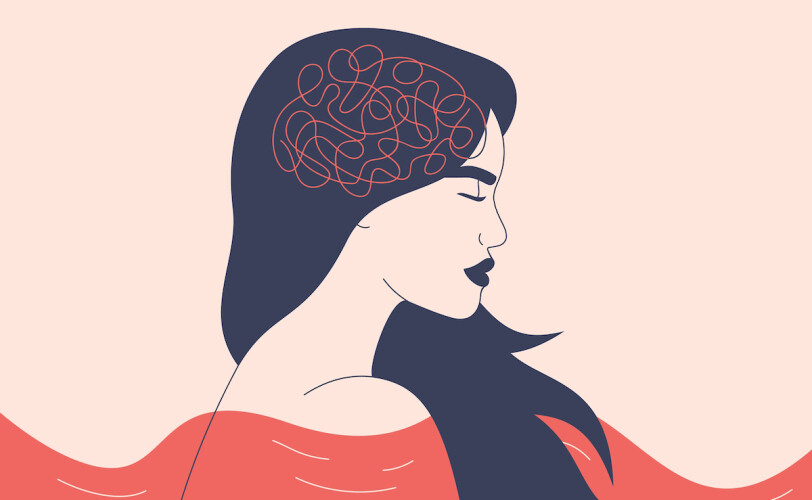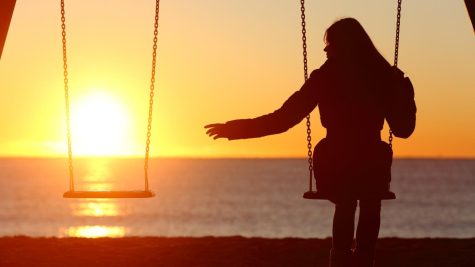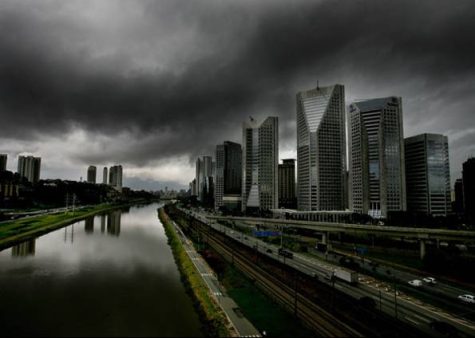An Observer With Paranoias
Depressed woman with flying hair stand in the choppy water. Lost girl feels frustrated and confused thinking. Concept of psychological problem, mental disease and brain illness. Vector illustration.
When you’re a person who likes to observe or someone who’s constantly aware of your surroundings, nothing goes unnoticed; sitting in traffic, I’ll glance at the person next to me, I’ll look in the rearview mirror, or even the car in front of me, and just imagine how they live their lives. Are they happy with the way they’re living? Do they like what they do for work, are they in love? I’ll randomly think about how they spend their lives. For all I know, I probably guessed it all wrong, but it doesn’t matter because I’ll never see them again.
I can be walking down the street and notice an elderly couple and imagine their life together, wonder if they had a happy marriage, were they high school sweethearts?
It goes beyond just imagining people’s lives. If I’m having a conversation with someone, I’ll be observing their every word and move. I will wonder why they speak the way they do and why people choose to see life the way they do? If they had any childhood traumas that made them that way? I notice the movements of their hands, how fast they could be blinking, and if a person is too shy to make eye contact.
There’s no better daydreaming than looking at an old black and white photo and trying to set yourself in that photo, in the same time zone, in the same story, whatever it might be.
There is something fascinating about being in a room with people, whether you know them or not, and just observing and listening and soaking in everything as they move and speak.
Being an observant person has also helped me become more mindful of my thoughts and emotions, allowing me to analyze things before I speak.
Sometimes this trait goes beyond just observing, and it turns into a compulsive need of being aware of my surroundings. And that’s when it can turn into dark-twisty anxiety. One can even say it is not the same trait but a complete opposite habit or a flaw.
Because of past traumas, I have always felt the need to prepare in case of an emergency, It’s as simple as always looking at exit points when in a movie theater, or when I’m sitting in a classroom, and sadly, even in church. It’s the constant glare at the door and preparing in case the worst was to happen.
I remember a funny incident that happened to me while at my gym when the front desk person started playing a song, and the intro to that song consisted of almost a minute of gunshots. So here I was at the gym, with no headphones, training to avenge my enemies, when suddenly I hear the loud bangs.
I look around, and the people on the treadmill are running, but not for their lives; they’re running to burn the calories they accumulated during the weekend.
People are still working out, and no one is alarmed; except for me. I could feel my heart rate going up, and my body started to sweat, worst than when I’m doing a HIIT workout.
The shooting sounds stop, and the song comes up. Everyone is still doing what they were doing. Meanwhile, I’m trying my best to act like I didn’t almost just have a heart attack in the gym.
Later I was able to laugh at myself for being ridiculous and assuming the worst, but regardless of where I am, being alert is extremely important for me to feel safe, I have noticed I take these measures particularly during the night time if I’m going to be out late, I always make sure to check the car before going inside, and immediately locking the door after I’m inside.
It’s the basic habit of just looking over my shoulder if I’m walking by myself or making sure I’m not distracted on my phone all the time.
I always prepare for a situation. It’s as simple as noticing everyone around while in public settings and paying attention to how people behave. As bad as that sounds, nowadays, I believe everyone should be more aware of their surroundings.

Nicole Alarcon is a senior at Mercy College, majoring in journalism. Born in São Paulo, Brazil, she moved to the United States at 10-years-old.
Nicole...








